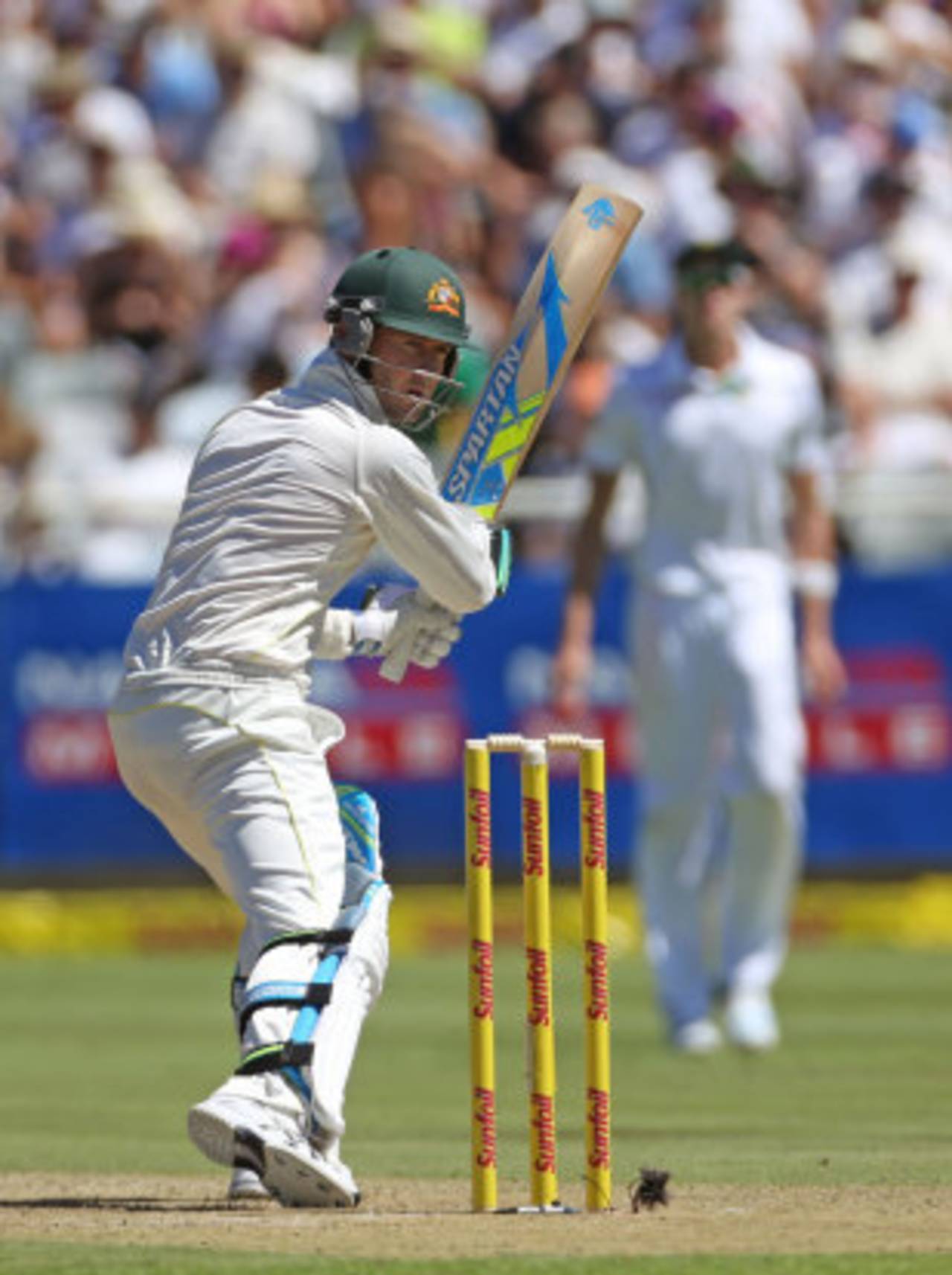Ryan Harris bowled himself halfway to crippledom for Australia last summer, culminating in a
Cape Town effort where he routinely charged in on a right knee that sported fragments of bone visible through the skin. Two months later, he confesses that surgery has allowed him to walk properly for the first time "in about two years" though it will likely cost him a place in the Test squad to face Pakistan.
In that same Newlands Test match,
Michael Clarke was battered by Morne Morkel and later revealed to have carried a fractured shoulder through the latter part of his unbeaten 161. Since then he has weathered plentiful criticism about a level of aggression on the field that suggests he wants to win a little too much, rather than too little.
Little wonder then that Harris said he has taken cricket's current corruption storm personally, and that Clarke spoke with pained idealism that he hoped the game's followers did not now assume that every match now needed to be viewed through cynical eyes. Australia are presently the world's top Test and ODI team, and neither Harris nor Clarke want to contemplate the possibility that they are at the pinnacle of a rotten game.
"I've been out there and done my best, my teammates have, it's just a very unfortunate thing that we're talking about corruption," Harris said. "Corruption in any sport I think is wrong and it damages the credibility of the sport. That's something that as players we take personally, because every time we go out as an Australian cricket team, and I know a lot of other teams do as well, they go out to win."
Clarke expressed no worry whatsoever that any of his Australia team-mates, past or present, had dabbled in the kinds of fixes daubed across the pages of the world's press this week. "I'm extremely confident about the players that I've played with," Clarke said. "For this Australian team they all know very clearly that there is no room for corruption in our team. A big part of our job is to uphold the integrity of our sport and I think we do that well.
"Everybody involved in the game is disappointed that things like this happen but I want to pay credit to the ICC and Cricket Australia for the work they put in to try and stop this, stamp it out of our game. Players have a big role to play as well, making sure that if you are approached or if something does come up, to go and speak to your captain, your team manager, the people at Cricket Australia.
"I don't think we should be tarring all the players with the same brush as well. What we've seen of late it's a minority that we're dealing with in these type of issues. I'd be disappointed if the supporters and the fans of cricket think that this is happening a lot more than it is. I am very proud of what this current team has done and achieved and I think we are educated well on what is right and wrong."
Australia's players, both international and domestic, have been the beneficiaries of comprehensive education on corruption issues down the years. Clarke made his debut for Australia in 2003, and has watched the growth of integrity procedures from their initial concentration on Test and ODI players to the wider net now cast to ensure all those entering into the Sheffield Shield, limited overs and Big Bash League competitions were fully aware of what not to do and what to report.
"What was I, 21, when I played my first ODI for Australia? And I think it probably started then in regards to international cricket," Clarke said. "But these days you get educated from a very young age. Once you come into the first-class system, even on a rookie contract, so for some guys it starts at 16 years of age. I think the educational process that Australian cricketers go through is extremely thorough - we know the differences between right and wrong and what is accepted and what isn't."
More unsettling for payers traversing the world for domestic Twenty20 tournaments, in addition to their international commitments, is the realisation that they cannot always be sure the inexplicable run-out, the surprising dropped catch or the heedless wide may all have far more deliberate and sinister implications. Harris admitted that hindsight was now murkier than it once was.
"It's a tough question ... you don't know," Harris said. "For me I've played to win and it's not until afterwards you find out that things have gone wrong or things are under suspicion. At the time I don't think of it, no one thinks of it."
For Harris, Clarke and other honourable competitors, that uncertainty is every bit as uncomfortable as the physical ailments they have so often pushed through in pursuit of victory. Because if the game isn't pure, is it really worth such pain?
Daniel Brettig is an assistant editor at ESPNcricinfo. @danbrettig
